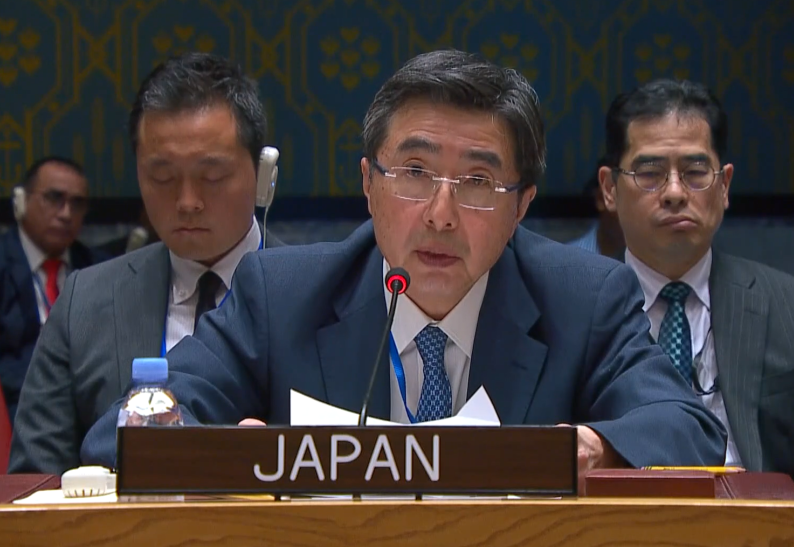マルチラテラリズムに関する安保理会合における石兼大使ステートメント
令和5年4月24日

(As delivered)
Mr. President,
At the outset, I would like to make this clear. Multilateralism is at the very heart of the United Nations. There may be different views on multilateralism, but I hope that this open debate is not intended to divide us rather than unite us.
No single Member State can solve today’s global challenges alone. We need a collective, multilateral response. Multilateralism functions only when Member States work together based on mutual trust and cooperation, consistent with the purposes and principles of the United Nations.
It is an irony, even a tragedy, that the Russian Federation, a permanent member of the Security Council, continues its unilateral aggression against Ukraine, while hosting an open debate on “effective multilateralism through the defense of the principles of the UN Charter,” on the very International Day of Multilateralism and Diplomacy for Peace.
The unprovoked, ongoing aggression by Russia is nothing but outright defiance of the principles of the UN Charter. The relentless use or threat of use of the veto that has accompanied this aggression has blocked the Security Council from making decisions, paralyzing and discrediting the Council when the world needs it most to fulfill its responsibility.
Russia must first and foremost withdraw all its troops and equipment from the territory of Ukraine within its internationally recognized borders immediately and unconditionally. That has been the repeated demand of the General Assembly supported by 141 votes, the overwhelming majority of the Member States.
Let me be clear. Any attempt to unilaterally change a peacefully established status of territories by force or coercion should not be tolerated anywhere in the world.
Also, any statement to deny sovereignty, independence, and territorial integrity of Ukraine, neighboring countries, or any other Member State should not be tolerated, especially those by a permanent member of this Council.
The concept note of this open debate circulated by Russia does not mention a single word regarding Ukraine, nor the aggression against it, and instead just criticizes many other past “crises and invasions.” There is no country with a flawless historical record – all of us should squarely face that reality and be humble about it. Having said that, it would be a misuse and politicization of the word “multilateralism,” if it were solely meant to criticize selectively chosen “unilateral” actions of other countries. Such a narrative in an attempt to garner support for one’s own camp and legitimize one’s actions would only create further division among us, and undermine the rule of law and multilateralism itself. Revitalizing and upholding multilateralism is more important than ever.
Let us remind ourselves. This is not the first time we have been divided. Every previous time, we found a path to overcome our divisions. So let us go back to the starting point – the purposes and principles enshrined in the UN Charter, and the rule of law, underpins effective multilateralism in a world of diversity.
This is why Foreign Minister Hayashi reiterated his call for “uniting for the rule of law” in this Chamber in January. This is why Japan promotes the rule of law in the Security Council and beyond. International law, including the Charter and resolutions of the UN, must be respected, abided by, and implemented in good faith by all. The UN should continue to be the bulwark of multilateralism. The Security Council should lead the work, not hamper it.
We have to admit. The UN has never been perfect. Nonetheless, we all need the UN as the core of multilateralism. We have to strengthen the functions of the UN through reform to better reflect today’s reality rather than that of almost 80 years ago, just as reminded by the Secretary-General in his briefing. It is long overdue since the world leaders declared in one voice the necessity of an early reform of the Security Council in 2005. We should redouble our effort to achieve this goal at the earliest.
Japan fully supports the Secretary-General’s initiative in “Our Common Agenda,” and will continue to actively and constructively participate in discussions on the “New Agenda for Peace.” I hope that the ambitious recommendations by the High-Level Advisory Board will promote lively discussions among the Member States. The future of the United Nations and multilateralism depends upon us, the Member States. Let us seize it together.
I thank you.
